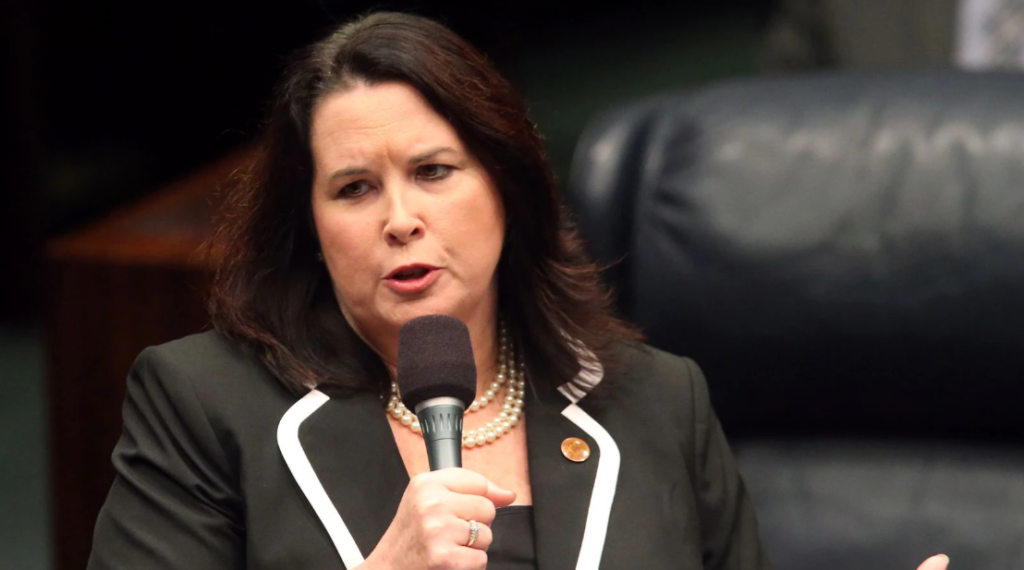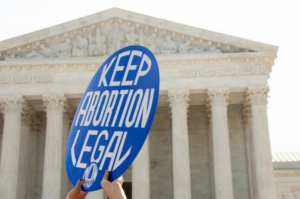DeSantis signs transgender athlete ban, says Florida will ‘stand strong’ against backlash
3 min read
Florida became the seventh state to ban transgender athletes from girls’ sports Tuesday when Gov. Ron DeSantis signed the Fairness in Women’s Sports Act into law, dismissing threats of lawsuits and boycotts.
“We won’t be cowed,” DeSantis said flanked by state lawmakers and student-athletes at Trinity Christian Academy in Jacksonville. “In Florida, girls are going to play girls sports, and boys are going to play boys sports. That’s the reality.”
Moments after DeSantis signed Senate Bill 1028, The Human Rights Campaign, the nation’s largest LGBTQ advocacy group, announced it will challenge the law in court.
“BREAKING: On the first day of #Pride, Florida Governor Ron DeSantis has signed into law a bill banning trans kids in the state from playing sports. We will be filing a lawsuit to block this arbitrary, discriminatory ban. #LetKidsPlay,” it tweeted.
The Fairness in Women’s Sports Act makes participation in athletics contingent on a student’s “biological sex” at birth and is “based off biology, not off ideology,” DeSantis said.
Under SB 1028, a transgender student-athlete must affirm their biological sex with proof such as a birth certificate. Students can sue if a school allows a transgender student to play on a team for biological females.
The bill-signing featured a video of Selina Soule, a Connecticut high school track athlete who sued over transgender girls competing in girls’ sports.
Sen. Kelli Stargel, R-Lakeland, who sponsored the act, said the video illustrates “men are stronger than women.”
“I’ve always heard as a kid, ‘You run like a girl,’” she said. “And when you’re looking at that video, it’s evident the woman, the transgender woman who competed, or ‘self-identified’ woman, ran very differently than the others in the competition. It’s physiologically different. Men are stronger, they have bigger lung capacity, stronger muscles.”
The act was added as an amendment to SB 1028, a bill authorizing career and professional academy charter schools that was adopted as an omnibus package in partisan votes by both chambers on April 28, two days before the 2021 session adjourned.
Among clauses removed from the original act was a provision requiring transgender athletes to undergo genetic testing and genital examination.
Florida joins Alabama, Arkansas, Idaho, Mississippi, Tennessee and West Virginia in banning transgender women and girls from playing on women’s sports teams.
South Dakota Gov. Kristi Noem has issued executive orders banning transgender athletes after vetoing a 2021 bill adopted by lawmakers for technicalities.
Louisiana lawmakers last week sent a ban bill to Gov. John Bel Edwards. He is expected to veto it. The governors of Kansas and North Dakota have also rejected bans adopted by lawmakers.
The National Collegiate Athletic Association (NCAA) in April said it will consider pulling events from states that pass transgender athlete bans. It has scheduled more than 40 regional and national championships in Florida between 2022-26. North Carolina lost NCAA events when lawmakers adopted a similar ban in 2017.
More than 70 corporations, including Facebook, Pfizer, Hilton and American Airlines, in a March statement, condemned bills placing restrictions on transgender people, including transgender athletes.
DeSantis dismissed fears of boycotts and backlash.
“Just let me say very clearly that, in Florida, we’re going to do what’s right,” he said. “We’ll stand up to corporations, they’re not going to dictate the policies of this state. We’ll stand up to groups like the NCAA who think they should be able to dictate the policies of different states. We won’t be cowed. We will stand strong. If the price of that is we lose an event or two, I would choose to protect our young girls every day of the week and twice on Sunday.”
This article was originally posted on DeSantis signs transgender athlete ban, says Florida will ‘stand strong’ against backlash







